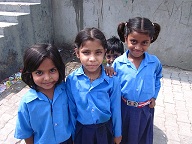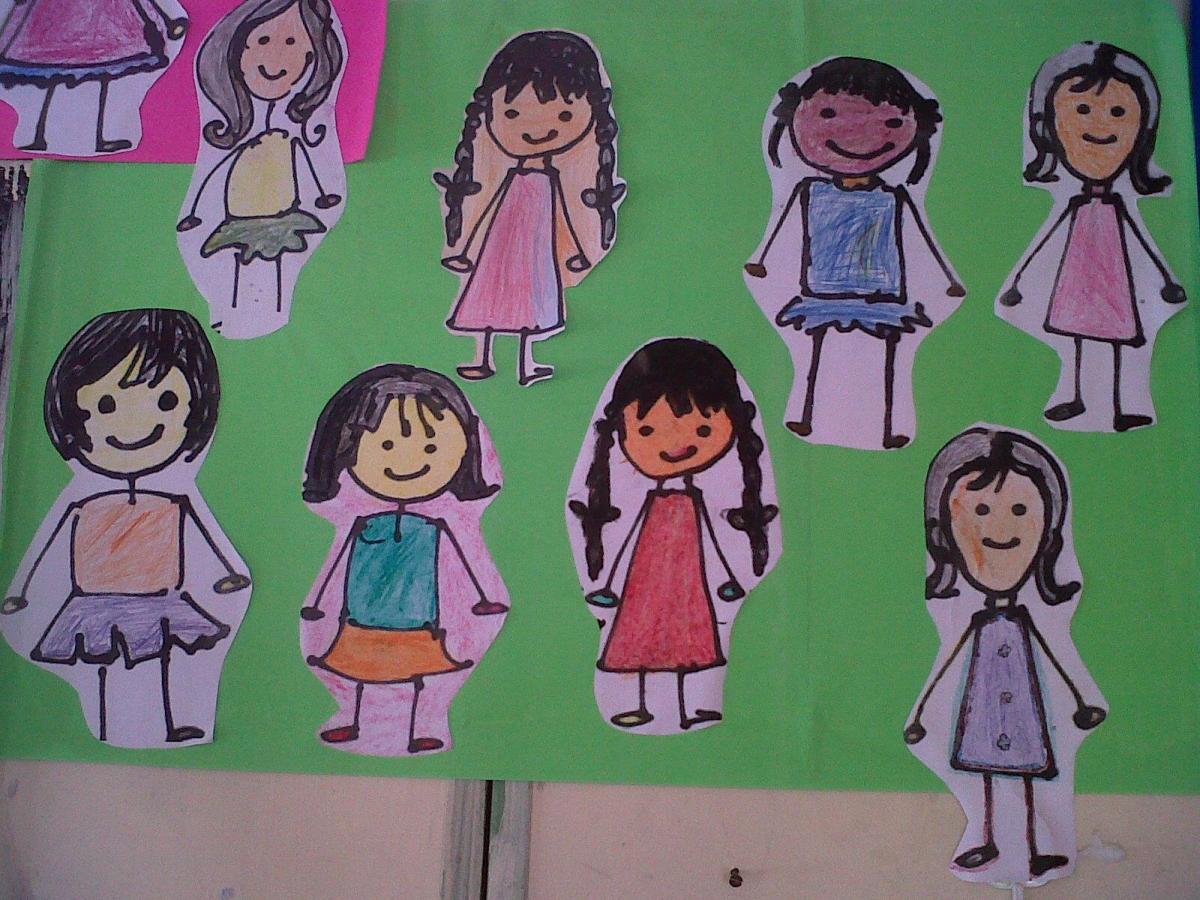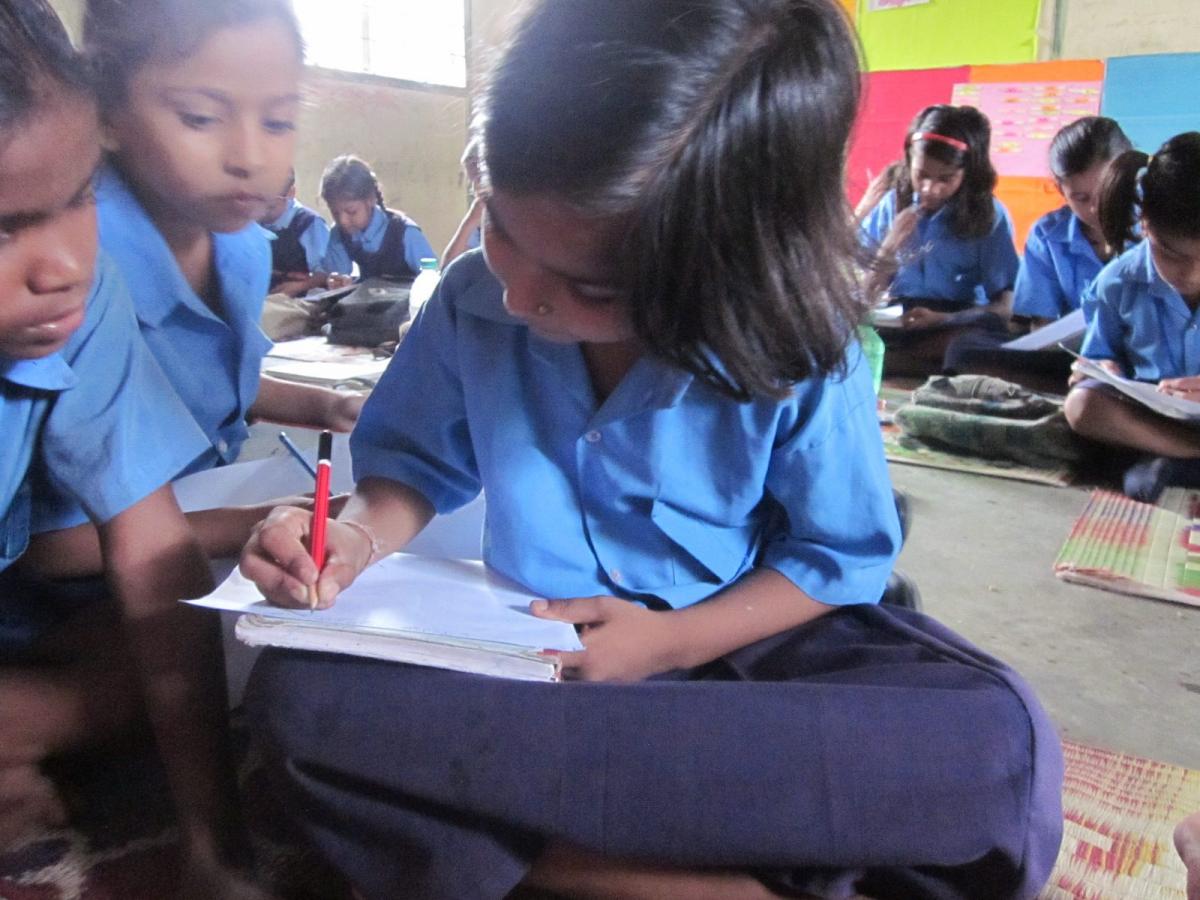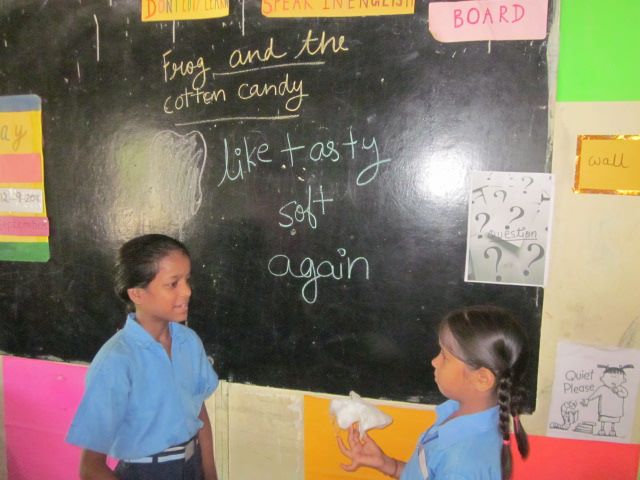 Women’s Worldwide Web welcomes back 2011 Teach for India Fellow and guest blogger Devanik Saha, who recounts his experience teaching bright, ambitious girls at a government-run, low-income girls’ school in New Delhi.
Women’s Worldwide Web welcomes back 2011 Teach for India Fellow and guest blogger Devanik Saha, who recounts his experience teaching bright, ambitious girls at a government-run, low-income girls’ school in New Delhi.
Devanik is, along with many other admirable, passionate teachers, working to break the gender barriers in education across India, and to promote equal opportunities for female students.
As a Teach for India Fellow at an all-girls’ school, I battle, first-hand and on a daily basis, with the magnitude of discrimination against my female students—discrimination that I had, before now, only read about in books, articles and blogs.
UNICEF’s ‘Working for an Equal Future’ 2010 policy report on gender equality and the empowerment of girls and women describes one of its primary goals: “to work for and envision the day when respectful relationships among girls and boys are understood to lie at the heart of a healthy and secure national future; a day when girls and boys are educated and encouraged to know and to speak their own truths; a day when all girls and boys have the specific knowledge and services they need to ensure a future of healthy reproduction and freedom from HIV and AIDS: a day when being a girl or a boy is no bar to quality education, or to high achievement in any sphere.”[1]
But, while international development agencies like UNICEF are committed to promoting gender equality and have implemented valuable gender mainstreaming strategies, the situation of girls and women remains particularly devastating in India, where they continue to face deeply-entrenched discrimination which hinders their individual progress and stymies the progress of Indian society at large.
 As a result of gender discrimination, the child male-female ratio in India has dropped to a low of 914 females for every 1,000 males – the lowest since Independence.This national ratio is even more imbalanced in certain districts across the country.[2] The district of Daman Diu, for example, counts a mere 533.44 females per 1000 males. An article entitled “India’s Missing Women”, published in the Guardian in July 2011, draws attention to the widespread occurrence of female foeticide in India, which is contributing to the grossly imbalanced ratio of male to female children: “Half a million girls a year are being aborted in India, equal to the total number of girls born in the UK.”
As a result of gender discrimination, the child male-female ratio in India has dropped to a low of 914 females for every 1,000 males – the lowest since Independence.This national ratio is even more imbalanced in certain districts across the country.[2] The district of Daman Diu, for example, counts a mere 533.44 females per 1000 males. An article entitled “India’s Missing Women”, published in the Guardian in July 2011, draws attention to the widespread occurrence of female foeticide in India, which is contributing to the grossly imbalanced ratio of male to female children: “Half a million girls a year are being aborted in India, equal to the total number of girls born in the UK.”
Indian newspapers constantly feature reports of sex-selective abortion and infanticide. It is a cause for concern for the Indian government. And yet, despite countless campaigns and the government’s implementation of stricter policies against this tragic phenomenon, people continue to abort their female foetuses or abandon or murder their female newborns—and these practices cut across boundaries of class and caste.
As a teacher in a school in the marginalized neighborhood of Sangam Vihar, New Delhi, I witness the effects of gender discrimination every day in the lives and attitudes of the children and families with whom I work. Some of the girls in my class, for example, have several sisters and a single brother. In these families, the brother is sent to an expensive private school for his studies while the sisters are sent to an underfunded and overcrowded government school.
 Moreover, most families force their daughters to drop out of school once they have completed the 10th grade (sometimes even earlier), in order to assume the responsibilities of maintaining the household and caring for siblings, in the hope that this will render the girls eligible for marriage within two or three years of their 18th birthday. This is a common pattern throughout India. It diminishes the lives of individual girls and the general status of Indian women, while also stunting India’s social evolution. (Not surprisingly, India ranks 112 out of 134 countries in the World Economic Forum’s Global Gender Gap Index for 2010.)
Moreover, most families force their daughters to drop out of school once they have completed the 10th grade (sometimes even earlier), in order to assume the responsibilities of maintaining the household and caring for siblings, in the hope that this will render the girls eligible for marriage within two or three years of their 18th birthday. This is a common pattern throughout India. It diminishes the lives of individual girls and the general status of Indian women, while also stunting India’s social evolution. (Not surprisingly, India ranks 112 out of 134 countries in the World Economic Forum’s Global Gender Gap Index for 2010.)
What can teachers do to help change this pattern? Lobbying campaigns and government regulations alone will not, in my opinion, bring about meaningful and lasting change. Rather, our society needs to be transformed from within: change will happen only when the hearts and minds of all individuals are opened and everyone is brought to recognize the incredible value of girls and their inherent potential as active members of our society and economy.
As a teacher of 27 underprivileged girls—girls who now feel to me like my own adopted daughters—I strive to create methods of reversing sexist trends and upending the cultural norms that limit girls’ opportunities and diminish women’s status. My teaching is not only about quizzing my students on their multiplication tables but also about educating them on their right to build worthwhile and meaningful lives for themselves. I am here to assist the girls in building their self-esteem and to encourage respect for girls’ human rights throughout the local impoverished communities—communities in which gender-based discrimination is at its most widespread.
 I have always been an advocate of gender mainstreaming in all development actions and, now that I am teaching, I want to be a source of inspiration for my pupils. I want to help them realize that they can be empowered individuals. As Ghandi said: “you must be the change you wish to see in the world.” Girls should not be confined to doing household chores, but should instead be encouraged to pursue an education and to be free to earn a living. My objective is to help my pupils achieve their full potential and thereby demonstrate to their families—and to other families across India—that girls can be just as successful in their schooling as their male counterparts—and perhaps even better!
I have always been an advocate of gender mainstreaming in all development actions and, now that I am teaching, I want to be a source of inspiration for my pupils. I want to help them realize that they can be empowered individuals. As Ghandi said: “you must be the change you wish to see in the world.” Girls should not be confined to doing household chores, but should instead be encouraged to pursue an education and to be free to earn a living. My objective is to help my pupils achieve their full potential and thereby demonstrate to their families—and to other families across India—that girls can be just as successful in their schooling as their male counterparts—and perhaps even better!













